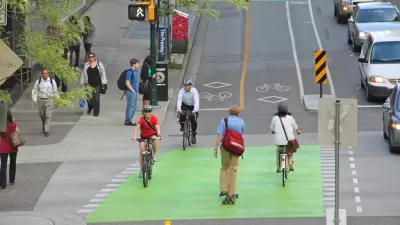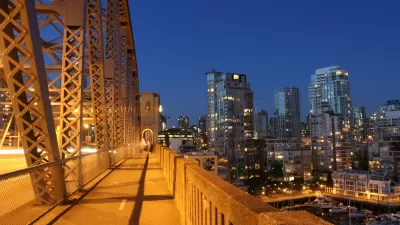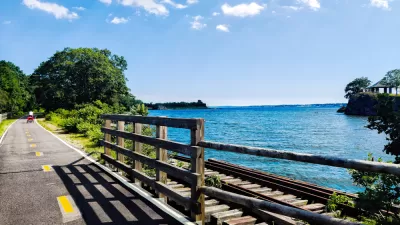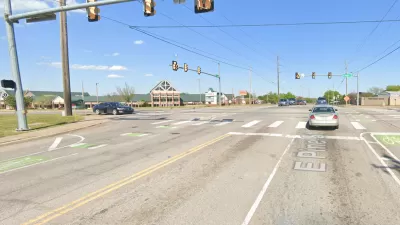Bike infrastructure is a source of political controversy, even in cities where biking is already popular.

In Vancouver, British Columbia, about one in every ten commuters bikes to work. Despite that relative success compared to most North American cities, residents in the city are debating the best ways to build bike infrastructure.
"Urban-planning and transportation experts have long feted Vancouver’s extensive system of bike-friendly side streets as a cheap and uncontroversial way for bike-resistant North American cities to create the infrastructure that gets people out of their cars and onto two wheels," according to an explanation of one side of the debate by Mike Hager.
But the side street approach is only part of the equation, writes Hager:
Networks of traffic-calmed streets can be an important – and politically feasible – middle step for a city to make cycling safer and easier for many, but, ultimately, separated lanes on busy streets are the key to getting more commuters peddling to work, according to Brent Toderian, Vancouver’s former director of planning.
Protected bike lanes, however, have a tougher political hill to climb in Vancouver, just as in other cities. According to Hager, for instance, conservative political and media figures have fomented a "bikelash" campaign against protected bike lanes.
FULL STORY: Vancouver’s cycling-friendly side streets seen as a key step forward for North American cities

Planetizen Federal Action Tracker
A weekly monitor of how Trump’s orders and actions are impacting planners and planning in America.

Chicago’s Ghost Rails
Just beneath the surface of the modern city lie the remnants of its expansive early 20th-century streetcar system.

San Antonio and Austin are Fusing Into one Massive Megaregion
The region spanning the two central Texas cities is growing fast, posing challenges for local infrastructure and water supplies.

Since Zion's Shuttles Went Electric “The Smog is Gone”
Visitors to Zion National Park can enjoy the canyon via the nation’s first fully electric park shuttle system.

Trump Distributing DOT Safety Funds at 1/10 Rate of Biden
Funds for Safe Streets and other transportation safety and equity programs are being held up by administrative reviews and conflicts with the Trump administration’s priorities.

German Cities Subsidize Taxis for Women Amid Wave of Violence
Free or low-cost taxi rides can help women navigate cities more safely, but critics say the programs don't address the root causes of violence against women.
Urban Design for Planners 1: Software Tools
This six-course series explores essential urban design concepts using open source software and equips planners with the tools they need to participate fully in the urban design process.
Planning for Universal Design
Learn the tools for implementing Universal Design in planning regulations.
planning NEXT
Appalachian Highlands Housing Partners
Mpact (founded as Rail~Volution)
City of Camden Redevelopment Agency
City of Astoria
City of Portland
City of Laramie





























